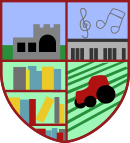County Lines
County lines is when criminals from larger cities expand their drug networks to other areas of the country – usually rural and suburban areas.
The crime is called county lines because dealers use dedicated mobile phone ‘lines’ to supply drugs. These criminals often exploit vulnerable adults to move and store drugs and money and regularly use coercion, intimidation, violence (including sexual violence) and weapons.
County lines activity can still be exploitation even if it appears consensual. It can involve force and/or enticement-based methods of compliance and is often accompanied by violence or threats of violence.
Vulnerable adults who use drugs, are in financial difficulty or have mental health problems are at greatest risk of being exploited by county lines gangs. These adults are groomed through offers of ‘free’ drugs, causing them to accumulate debts which can only be paid off by participating in county lines activities (also known as debt bondage).
Sometimes drug dealers will take over the home of a vulnerable person – this is known as cuckooing.
Common signs that someone is being exploited include those listed below. Please note that this is not an exhaustive list and that warning signs will show themselves differently in each person. It is important to explore all concerns over someone’s behaviour and personal circumstances and to consider whether they could be signs of exploitation
-
becoming more secretive, aggressive or violent
-
meeting with unfamiliar people
-
persistently going missing – someone may go missing from their home or local area when they are trafficking drugs along ‘deal lines’
-
leaving home without explanation or staying out unusually late
-
loss of interest in school, college or work and decline in performance
-
suspicion of physical assault or unexplained injuries – including ‘DIY injuries’, (knife and puncture wounds) which are signs of punishment for drug-related debts
-
using language relating to drug dealing, violence or gangs
-
carrying a weapon.
-
associating with a gang
-
becoming isolated from peers and social networks
-
having a friendship or relationship with someone who appears older or controlling
-
using drugs, especially if their drug use has increased
-
unexplained acquisition of money, drugs or mobile phones.
